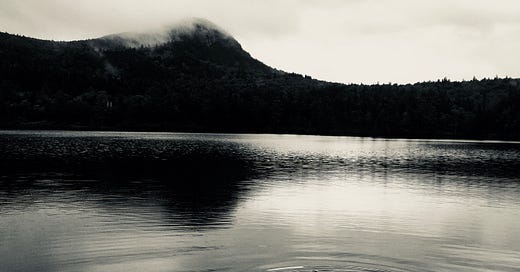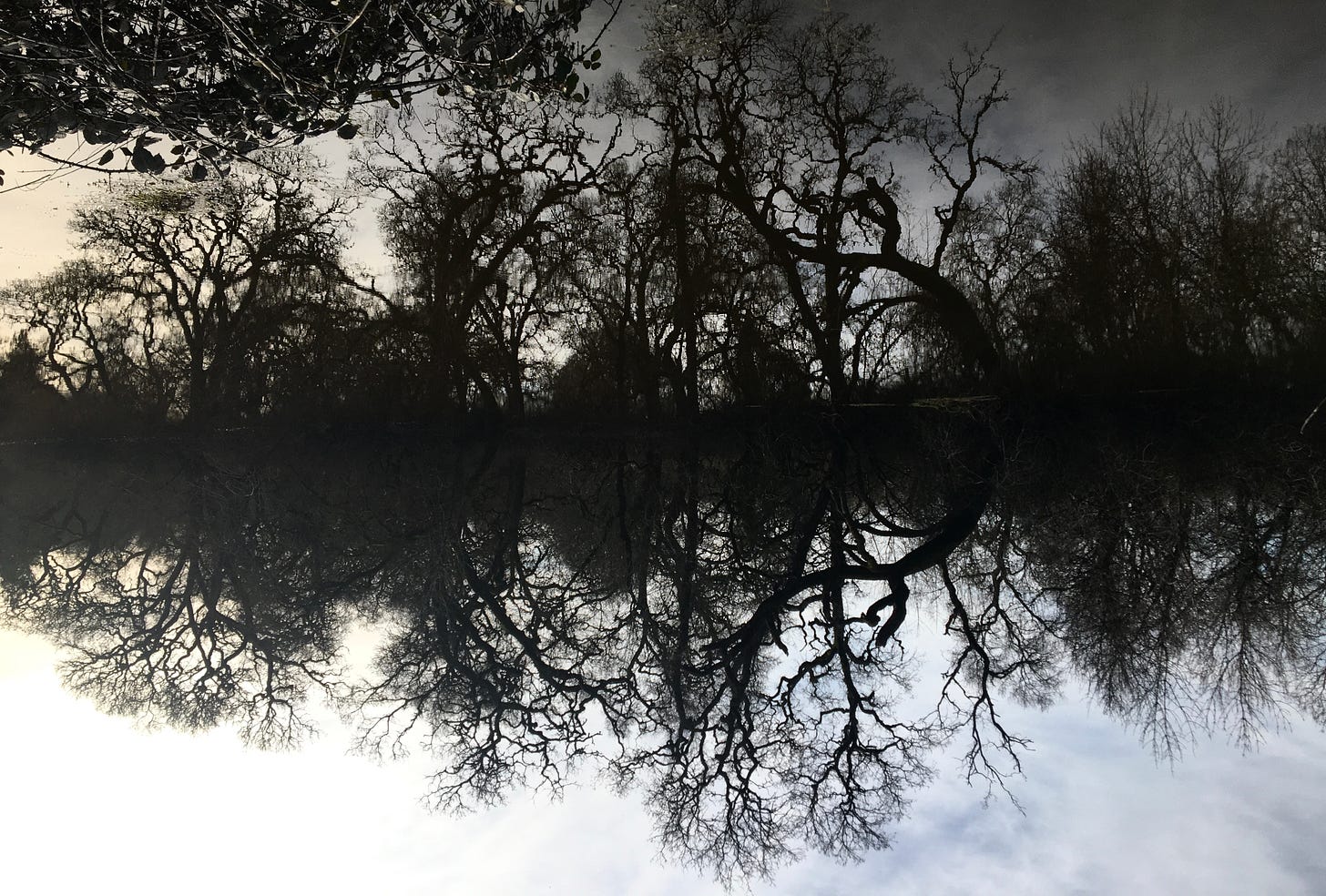I wake up to the dawn chorus, robin first, nearly always, then wren and chickadee and the eastern phoebe sitting in the white oak above my tent. I wait for the thrilling trill of the hermit thrush, knowing they are here right now, but they wait too. Instead, the soft morning light reminds me that summer has tipped past it’s fullness, and the forgotten season of late summer has begun. It is so subtle, almost a smell but not quite, like sun-kissed skin after a dip in cool water. This is the season the Earth begins her exhale. I inhale deeply, slowly, catching my breath at the top, then pay attention the moment exhaling begins. It’s so fleeting, I have to do it again and again to know anything about how it feels in my own body. When I get it, it’s the sweetest sensation, like letting the oars go on the boat, surrendering to the current.
This time of year is often referred to as simply the Mother: grounding, caring, and nourishing. It’s represented by Earth in five element theory, the moment that digestion is strong, worry is minimal, and stability is possible. Essentially, everybody out there has something to forage. Funny, it’s the mother archetype that gets left out in our ‘western’ story of the seasons.
So it’s late summer, but also, the newly coined ‘fire season’ now. This year, fires have ravaged whole swaths of Canada, Greece, Algeria, but other years it’s been California, Australia, Spain, South America. I moved from California to Western Massachusetts, in part to endure less fire danger, but even with the fires thousands of miles from my new home, the smoke’s fingers still reach into the lush green mountains I hike through. It’s devastating in a different way, and still so much grief to metabolize. Maybe Earth needs this fifth season to metabolize all the extra grief in the smoke?
On my little families’ first backpacking trip in three years, we wake to a high, subtle haze deep in the backcountry, and know it is not just a thick morning mist by the headaches that bloom. Instead of staying one more night, the smoke pushes us on. I notice my almost teen quiet for most of the hike, shoulders heavy with more than just his pack. At the end of a long day, curled up inside a cheap stuffy cabin with windows and doors closed, he finally exhales his weight: “What do you think is going to happen to the planet? It’s so sad mama, I can barely stand it." I ask small questions to tease the emotions out until he grows bolder with his words and they fly like swallows from a nest. When it’s time to offer an answer to his litany of questions, I don’t quite believe my words. I try to point to the possibility that we are small here, and don’t know what’s truly possible as this great Earth changes, but I sound a bit like a climate change denier. I’m trying to protect him from the fullness of despair. I pause, looking deeper. I know this pain he is beginning to feel with acute intimacy. Gratitude, I tell him, is what gets me through the other side of this grief. It’s why I’ve taught him and his brother to bow to the rivers we submerge in, to ask before we take the newly identified chaga (who says “no”), and greet the trees we sleep under. “But is it enough?” he asks. I don’t know. We both look up to the canopy of green and hug each other a little tighter. I don’t know anything really.
Later, out for a short walk on the red rocks of the wide Saco river, I remember a story about the grandmother I’m named after, but never shared a continent with. She was being evacuated from a city slated to be bombed to bits (which it was), with her five kids under 12 years old. My aunt tells the story that when the officers came to take this widow and her children, she walked over to the old piano and played a final piece of music. She refused to leave until it was finished, until the music lingered in the air of this now forgotten land that my baltic ancestors inhabited long before recorded time. I imagine it was an act of defiance, but perhaps also one of gratitude, leaving the blessing of a song for the city that would be destroyed, along with it’s elderberry-lined river, ancient lindens, and nesting songbirds.
I finally hear the hermit thrush at twilight and look up to see the beech leaves dancing lightly over the river’s edge, like hands fluttering on the water’s surface. To notice, and let that noticing lighten my heart, feels like letting myself be a part of this Earth that is beautiful, and burning, and adjusting to my - our - presence. Maybe this is the season of adjustment, the season to trust human connectivity and be in the unknowing of what’s to come, together.
I like to imagine all of us humans bowing before we enter a body of water - be it a lake, a sea, a bath - and how that simple ritual might change the landscape, and what happens next.






